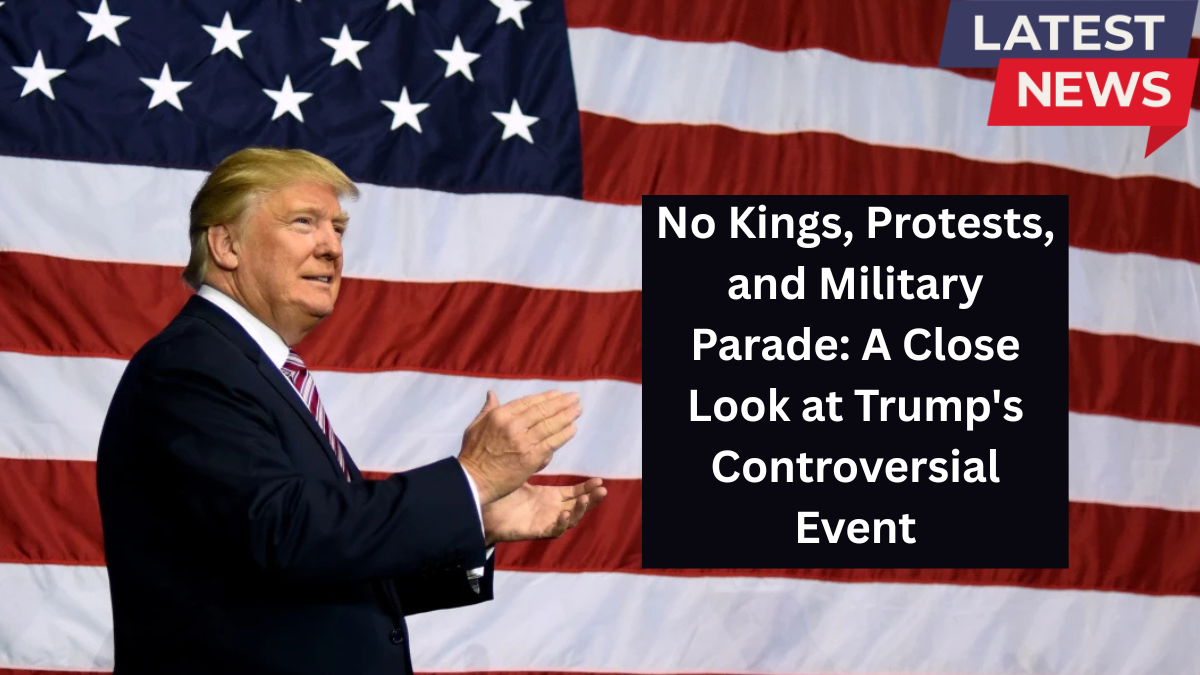On June 14, 2025, the United States witnessed a highly debated event led by former President Donald Trump. The occasion was marked by protests, a military parade, and significant opposition to the idea of honoring “kings” or monarchies. This article explores the controversy surrounding Trump’s event, focusing on the protests, the use of military displays, and the debates about the symbolism of honoring powerful figures.
The Military Parade:
One of the most talked-about aspects of the event was the military parade. Former President Trump has always shown admiration for strong displays of power, and this parade was no different. Military vehicles, marching soldiers, and aircraft flew overhead, all aimed at showcasing American strength. The parade, however, sparked intense debate among Americans. Many critics felt that the display of military might was unnecessary and extravagant, especially during a time when the country faces other important issues such as healthcare and education.
Some also pointed out the dangers of glorifying military power, arguing that it might send the wrong message to younger generations about the importance of peace over war. Despite the controversy, Trump supporters defended the parade, calling it a celebration of American pride and respect for the military.
Protests Against the Event:
As with many events involving Donald Trump, the military parade was met with large-scale protests. People took to the streets in several cities to express their opposition to the parade, claiming that it was a waste of taxpayer money. Many protesters also voiced their concern that the parade was too focused on showing power and might instead of celebrating the values that America stands for, such as democracy and freedom.
Another significant issue raised by protesters was the symbolism behind the event. Trump’s supporters have sometimes referred to him as a “king” or a “leader of great power.” This idea of honoring powerful figures, or even monarchs, was met with backlash by those who believe that America’s founding ideals reject the notion of monarchy and kingship. They saw the event as a step towards the wrong kind of leadership — one that is too focused on personality and power rather than the principles of democracy.
No Kings, No Monarchs:
A key slogan that emerged from the protests was “No Kings, No Monarchs,” reflecting a strong belief in the importance of democratic leadership. The idea of having a king or a ruler who has unchecked power does not sit well with many Americans, who value the system of checks and balances in their government. The protests highlighted the concerns of those who fear that displays of power like this parade could lead to a more authoritarian style of leadership, something that America has always tried to avoid.
For many protesters, the idea of Trump being celebrated in such a grand way reminded them of monarchies where power is passed down without regard for the people’s will. These protesters want to remind everyone that the United States is built on the idea that leaders are chosen by the people, not because of their birthright or force.
The Divided Opinions:
The event left Americans divided. Some viewed it as a necessary show of strength and pride, while others saw it as a dangerous display of authoritarianism. Trump’s use of the military for political purposes only added to the controversy, leading many to question whether the event was about honoring the military or boosting Trump’s image.
While some argued that such parades are common in other countries and should be a normal part of national celebrations, others strongly felt that military power should never be used to boost any one person’s reputation. For them, the event seemed like an attempt to elevate Trump to a position of power that went beyond what any president should hold.
The military parade led by Donald Trump on June 14, 2025, remains one of the most controversial events in recent American history. It raised questions about the use of military displays, the role of leadership in a democracy, and whether honoring powerful figures like kings has any place in modern America. As the nation moves forward, the protests and debates surrounding this event are sure to continue, as Americans grapple with the meaning of leadership, power, and democracy.
While the parade was seen by some as a moment of pride and strength, for many others, it symbolized a dangerous shift toward authoritarianism. The debate over whether America should embrace displays of military power and the idea of honoring figures with unchecked authority remains unresolved, but it is clear that this event will continue to spark conversation for years to come.
